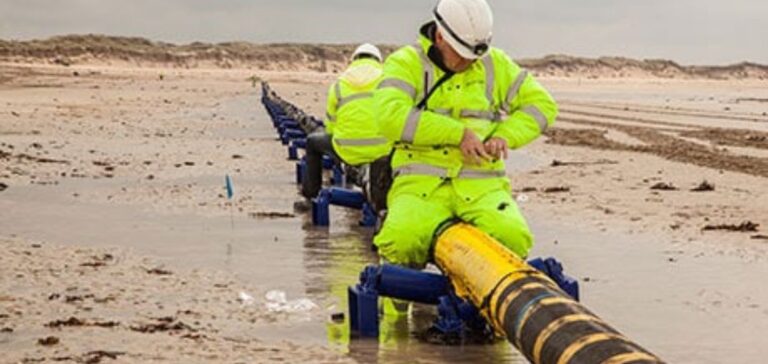Energy regulators in France and Spain announced last Thursday an agreement to increase the cost of an electricity interconnection project between the two countries from 1.75 billion euros to 2.85 billion. The original goal was to have the project in service by 2025, but that date has now been pushed back to 2028. The reasons for this increase are explained by the “unfavorable” market and the strong increase in the prices of the main components of these future links, in particular for the DC cables and for the converter stations.
A key infrastructure for security of supply and Franco-Spanish decarbonization
This 400-kilometer power line project, three-quarters of which is underwater, is being carried out by the French grid operator RTE and its Spanish counterpart REE. It is intended to link Gatica, in Spain, to Cubnezais (Gironde) in France. It benefits from a European grant of 578 million euros from the European Interconnection Mechanism (EIM). Despite this increase in costs, the regulatory authorities have recognized that this project still offers benefits for both countries and more broadly for Europe. The French Minister of Energy Transition Agnès Pannier-Runacher welcomed the agreement reached on Thursday, saying that the project should “increase the exchange capacity (of electricity between the two countries, nldr) from 2.8 to 5 GW.
Distribution of costs and grants
The estimated reference cost of the project is now set at €2.390 billion, and will be divided between the network operators before any subsidy, with REE receiving 50% and RTE 50%. The allocation must change if the costs exceed this baseline. The allocation of costs between RTE and REE is set out in a decision published on the website of the French Energy Regulatory Commission (CRE) and also includes provisions for any increase in the European subsidy.
Reaction of the Minister Agnès Pannier-Runacher
Agnès Pannier-Runacher welcomed the agreement reached on Thursday, stressing that this electricity interconnection project was a key infrastructure for the security of supply and the decarbonization of France and Spain. She also stressed that it is thanks to the Europe of energy and the integration of our markets that we can move forward together.
In conclusion, despite an increase in costs and a postponement of commissioning, this electricity interconnection project between France and Spain remains a project that will bring benefits to both countries and, more broadly, to Europe, particularly in the context of the energy transition.






















